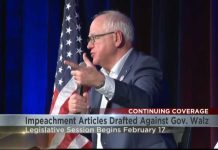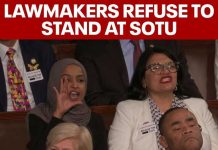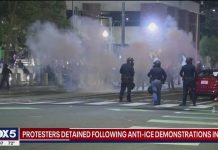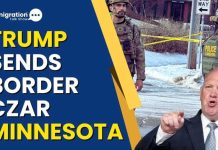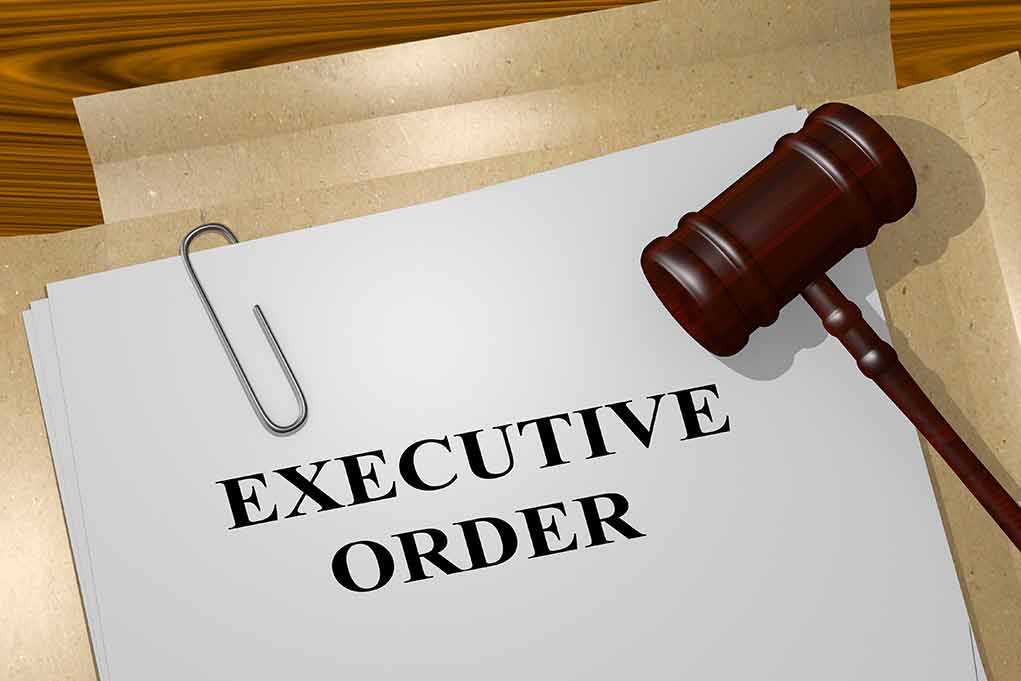
President Trump’s executive order designating Antifa as a domestic terrorist organization marks an unprecedented federal crackdown on radical left-wing activism, sending shockwaves through both supporters and critics of constitutional freedoms.
Story Snapshot
- Trump signs first-ever executive order labeling Antifa as a domestic terrorist group, directing sweeping federal action.
- Federal agencies receive immediate mandates to investigate, disrupt, and dismantle Antifa’s alleged operations nationwide.
- Critics warn of potential threats to civil liberties and legal challenges due to Antifa’s decentralized structure.
- Supporters see the move as a decisive stand for law and order amid years of left-wing violence and unrest.
Trump’s Executive Order: A Federal Response to Left-Wing Violence
On September 25, 2025, President Donald Trump signed a landmark executive order officially designating Antifa as a domestic terrorist organization. This move not only fulfills a long-standing promise to crack down on what the administration views as radical left-wing terrorism, but it also mandates an “all-of-government” initiative. Agencies including the Department of Justice, Department of Homeland Security, and FBI have been directed to coordinate efforts to investigate, disrupt, and dismantle Antifa’s alleged violent operations across the United States. The executive order immediately triggered enforcement directives and widespread media coverage, emphasizing the administration’s stance that Antifa’s activities threaten lawful political expression and public safety.
With this order, Trump’s administration asserts that Antifa is responsible for orchestrating “coordinated violence and terrorism nationwide.” This marks the first formal federal designation of Antifa as a terrorist entity—a step previous administrations considered but never enacted. Supporters of the order argue that it is a long-overdue response to years of escalating political violence, particularly given Antifa’s prominent role in protests and unrest since the late 2010s. Federal agencies are now mobilizing to launch comprehensive investigations into Antifa’s operations, funding, and organizational structure, signaling a sharp escalation in the government’s approach to left-wing activism.
Background: Antifa’s Origins and the Path to Federal Action
Antifa, short for “anti-fascist,” traces its roots to European anti-fascist movements of the 20th century, gaining significant traction in the U.S. in the 2010s during protests against white supremacist rallies and police violence. Despite its ideological alignment against far-right extremism, Antifa has faced continuous scrutiny for alleged violent tactics and confrontations with law enforcement. The movement’s visibility surged during events such as Charlottesville in 2017 and the nationwide protests in 2020, intensifying debate over whether it constitutes a genuine organizational threat or a loosely affiliated ideology. Trump’s executive order follows years of failed attempts to label Antifa as a terrorist group, with the administration now framing the issue as a battle for the rule of law and the safety of American communities.
The decision comes in the wake of several high-profile incidents, including the assassination of conservative activist Charlie Kirk, cited by the administration as justification for the crackdown. However, experts note that Antifa’s decentralized nature complicates enforcement efforts, as the movement lacks formal leadership or centralized command. This ambiguity has fueled controversy, with civil liberties advocates warning of potential overreach and vague targeting of ideology rather than concrete criminal activity. Nevertheless, the administration’s stance is clear: left-wing violence must be addressed with the full force of federal authority.
Legal and Social Fallout: Challenges, Divisions, and Constitutional Concerns
The immediate aftermath of Trump’s order has seen federal agencies launch investigations and potential enforcement actions, while legal experts and civil rights organizations prepare to challenge the designation’s constitutionality. Critics question the order’s practical impact, arguing that targeting a loosely organized ideology raises significant First Amendment concerns and risks suppressing lawful protest and free speech. Supporters, meanwhile, frame the move as an essential step to restore law and order after years of perceived government inaction and escalating violence. The legal sector anticipates a wave of new cases challenging the order, with nonprofit and advocacy groups facing increased scrutiny and potential resource constraints as investigations unfold.
Heightened political polarization is a likely consequence, as the order sets a precedent for future ideological designations and federal interventions in protest movements. While some believe the crackdown will deter organized violence and restore public confidence in law enforcement, others argue it could chill legitimate activism and deepen mistrust between communities and government. The debate over the nature of Antifa—organization or ideology—remains unresolved, reflecting broader tensions over the balance between security and constitutional freedoms in an era of intense political division.
"Trump Signs ‘All-of-Government Effort to Dismantle Left-Wing Terrorism,’ Antifa" – The Daily Signal #SmartNews what about the right wing terrorist https://t.co/aMz5bMm9DG
— Kyleellen (@Kyleellen) September 26, 2025
The long-term implications of this executive order are unfolding. Federal agencies are reallocating resources to pursue investigations, communities associated with left-leaning activism face heightened scrutiny, and civil liberties groups are gearing up for protracted legal battles. As the country watches the consequences of this unprecedented action, constitutional protections, the right to assemble, and the limits of executive power are all under renewed scrutiny—fundamental issues that strike at the heart of American conservative values.
Sources:
Designating Antifa as a Domestic Terrorist Organization – White House
Q&A: Antifa Is Not a Single Group – ACLED
President Trump Isn’t Backing Down from Crushing Radical Left Violence – White House
Trump’s Terrorism Designation of Antifa: Meaningless or Serious Threat? – Charity & Security Network


